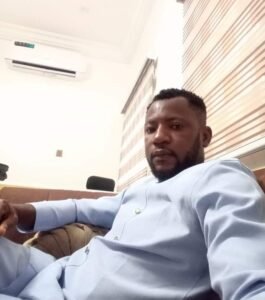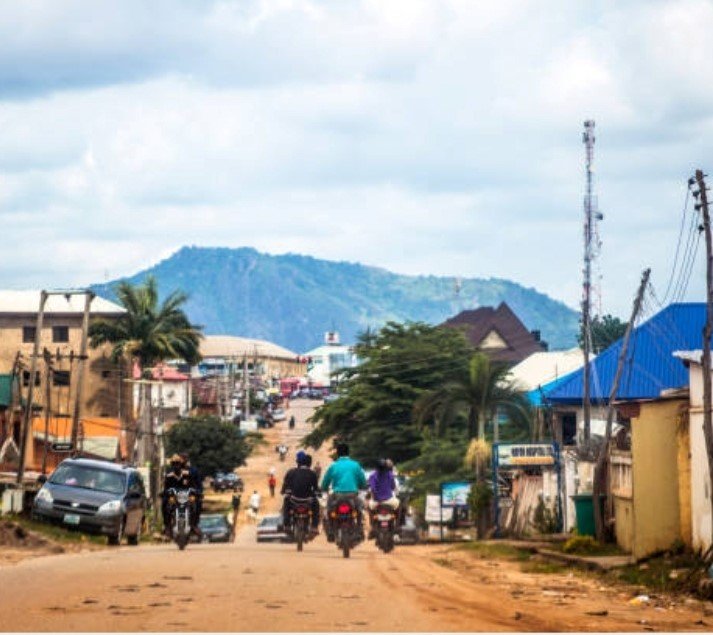As Nigerians settle into the new year, their expectations from the federal government are at an all-time high. From security to health, education, poverty alleviation, and the economy, Nigerians are eager to see positive changes in their country. In this report, Africa Health Report’s Juliet Jacob Ochenje, took to the streets of Abuja to present these voices of ordinary Nigerians, expressing their hopes and expectations from the government in 2024.
Security:
“I want the government to prioritize the security of all citizens. We need to feel safe in our homes and communities. The government should invest in modern technology and intelligence gathering to combat crime and terrorism.” – Mr. Prince Emelobum, an Abuja resident.
“I expect the government to address the root causes of insecurity, such as unemployment and poverty. We need more job opportunities for the youth to prevent them from being lured into criminal activities.”
Health:
“Access to quality healthcare is a fundamental right. The government should invest in healthcare facilities, provide essential medications, and ensure that every citizen has access to affordable medical services,” Mr. Desmond Eze, Abuja resident.

According to Eze, “As a Nigerian, I have high hopes for the country’s health sector through 2024, especially given the many challenges and unfulfilled expectations of the past. These expectations include better resource allocation in conjunction with the 2001 Abuja Declaration, which stipulates that health should receive at least 15 per cent of the annual budget.
“In 2024, Nigerians expect advances in the quality of available medical treatment, access to trained medical professionals, and adequate medical care, which will generally lead to improvements in cleanliness and hygiene in health facilities. Nigerians rightly deserve convenient access to basic services such as maternal and child health, vaccines, and basic diagnostics.
“Nigerians yearn for a robust emergency response system capable of managing outbreaks and critical situations effectively and quickly. Things like dedicated infrastructure, trained staff, and readily available resources should be part of the package.
“Attention to mental disorders and the provision of readily available and affordable therapies cannot be overlooked. Also high on the list is providing culturally relevant support networks and combating the stigma associated with mental health issues.”
“We need a comprehensive healthcare system that addresses both preventive and curative measures. The government should focus on putting an end to the mass exodus of doctors from the country. As many as 1,417 doctors had left the country in 2023, exacerbating the shortage of doctors in the country,” said Dr. Wale Lasisi, the President of the Nigerian Medical Association of Oyo State.
He continued, “We hope that the government will invest more in the health sector and ensure the proper implementation of health sector policies.
“The government should also improve primary health care centres and infrastructure across the country. In addition, new university hospitals in places with large coverage and population should be mentioned,” he said. “We also hope that the government will improve the pay of healthcare workers to retain the workforce and provide the necessary equipment to make the job easier.
“Health is wealth; therefore, the government at all levels must prioritize the provision of quality healthcare. While the majority of the population cannot afford the exorbitant costs of healthcare and the majority cannot afford medical tourism,” Lasisi added. “For a government pursuing a new hope agenda, we expect that new hope will also have an impact on health and should be done as quickly and effectively as possible.”.
Education:
“The government needs to revamp the education system and make it more accessible to all. Quality education should not be a luxury for the privileged few. We need better infrastructure, well-trained teachers, and affordable tuition fees,” says Ngozi, a parent in Abuja.
“In 2024, the government needs to urgently address the issues in our education sector. Education is crucial for the success of any nation, and we cannot afford to overlook its significance. Unfortunately, in 2023, there was minimal progress in the educational sector. We are facing numerous challenges such as poor educational environments, inadequate infrastructure, limited instructional materials, low remuneration for educators, and financial constraints. The budgetary allocation for education was disappointing, falling far short of the 26% recommended by UNESCO. It’s time for a transformative change in our education system, and it begins with recognizing the inadequacies and committing to meaningful improvements,” says Ehi Sunday.
“This year, I urged the government to prioritize education and stop relying on Western countries for support. It’s time to focus on finding solutions to the ASUU strike and to implement the promised policies. We also need to address the issues in private secondary schools where parents are being exploited by exorbitant fees for registration for public examinations such as the Senior School Certificate Examination (NECO) and the West African Senior School Certificate Examination (WAEC),” Sunday added.
Poverty Alleviation and the Economy:
“Corruption is a major obstacle to poverty alleviation. The government should prioritize transparency and accountability in its economic policies and ensure that resources are allocated equitably for the benefit of all citizens.” – Tunde, an economist in Abuja.
“The government must implement effective poverty alleviation programs to lift people out of poverty. We need sustainable initiatives that create jobs, support small businesses, and provide social safety nets for the most vulnerable,” says Oche Wisdom, a resident in Abuja.

He went on to say, “In the year 2024, I have numerous expectations from the Nigerian government, especially in addressing the economic crisis that has severely affected the lives of the poor masses. The removal of fuel subsidies only exacerbated the situation, with the cost of fuel skyrocketing. I urge the government to reconsider this decision and provide the promised palliatives. In addition, the government should focus on stabilizing the falling naira, attracting foreign investors, supporting small businesses, and improving the living conditions of citizens. Prioritizing the agricultural sector through grants and loans for farmers is crucial for boosting production and economic growth.
“The ongoing hikes in prices across various sectors, such as transportation, food, rent, and tuition fees, have further made life challenging for many. The government needs to address these issues as well as tackle unemployment, inflation, and poverty.”
The voices of Nigerians reflect a collective desire for positive change and progress in various aspects of governance. As the country looks ahead to 2024, the expectations from the Federal Government are clear: prioritize security, revamp the education system, improve healthcare, and implement effective poverty alleviation measures. It is now up to the government to listen to the voices of its citizens and take meaningful action to fulfil these expectations. Only then can Nigeria truly move forward towards a brighter future for all its people.



